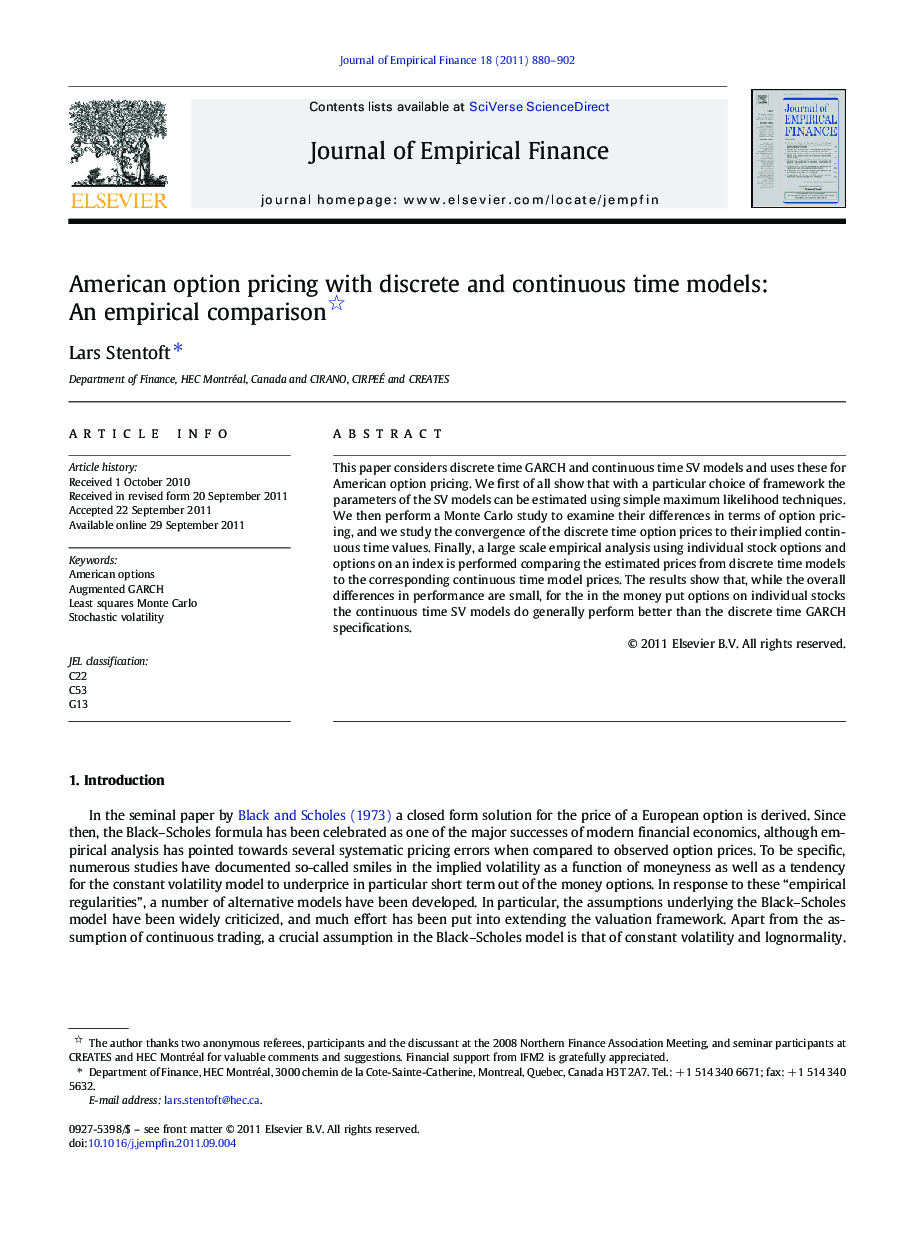| Article ID | Journal | Published Year | Pages | File Type |
|---|---|---|---|---|
| 958289 | Journal of Empirical Finance | 2011 | 23 Pages |
This paper considers discrete time GARCH and continuous time SV models and uses these for American option pricing. We first of all show that with a particular choice of framework the parameters of the SV models can be estimated using simple maximum likelihood techniques. We then perform a Monte Carlo study to examine their differences in terms of option pricing, and we study the convergence of the discrete time option prices to their implied continuous time values. Finally, a large scale empirical analysis using individual stock options and options on an index is performed comparing the estimated prices from discrete time models to the corresponding continuous time model prices. The results show that, while the overall differences in performance are small, for the in the money put options on individual stocks the continuous time SV models do generally perform better than the discrete time GARCH specifications.
► We consider discrete time GARCH and continuous time SV models for option pricing. ► Using a Monte Carlo study we examine differences in option pricing and convergence. ► A large scale empirical study shows that differences in performance are small overall. ► Though, for in the money options on individual stocks SV models perform better.
